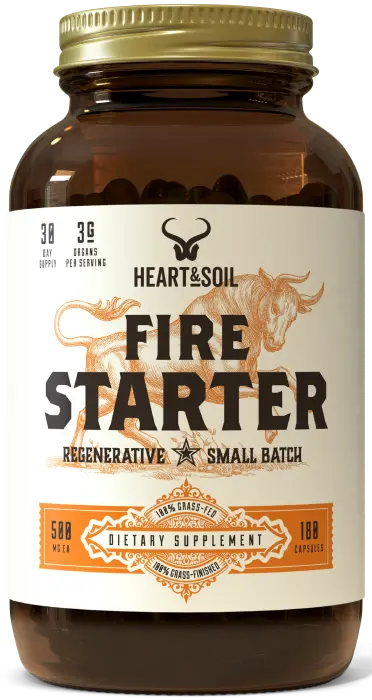PLEASE NOTE: The information in this blog is for educational purposes only. It is not a substitute for professional medical advice. Consult your healthcare provider if you’re seeking medical advice, diagnoses, or treatment.
The term “vegetable oil” sounds healthy and pleasant, doesn’t it? Yet, a closer look beneath the surface reveals a different reality.
Vegetable oils are cheap and can be used for a wide variety of needs in the kitchen, but this convenience comes at a cost. These oils are emerging as a critical piece of the rising rates of obesity and other chronic diseases seen globally.
As the hysteria around saturated fats (think butter, tallow, ghee, or coconut oil) settles down, the pendulum is swinging back toward traditional fats and away from vegetable oils.
This article walks you through 7 healthy alternatives to vegetable oil!
Why You Should Avoid Vegetable Oils
Vegetable oils are made from nuts, legumes, oilseeds, or fruits (1). Seed oils are a type of vegetable oil that comes from the seeds of crops and contain high levels of linoleic acid, an omega-6 polyunsaturated fatty acid (PUFA).
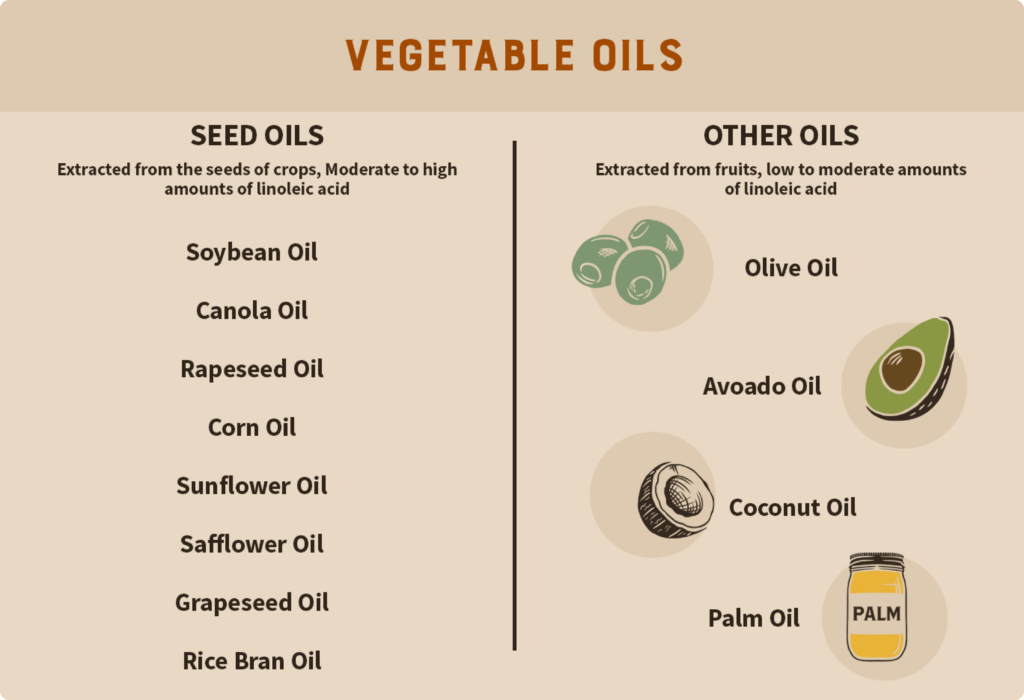
Due to their lower cost, vegetable oils are used in most restaurants and are found in highly processed foods.
While it has many issues, the typical Western diet contains an excessive amount of omega-6 fatty acids, which can contribute to obesity, cardiovascular disease, and other major challenges (2).
Vegetable oils can also oxidize due to their high polyunsaturated fat (PUFA) content, potentially promoting disease processes (3). Fat sources higher in saturated and monounsaturated fat are less likely to oxidize (4).
Animal fats mainly contain saturated and monounsaturated fatty acids, but vegetable oils are primarily oleic and linoleic acid (5).
In particular, linoleic is the most abundant omega-6 fatty acid in the Western diet (6). Vegetable oils often contain high levels of linoleic acid.
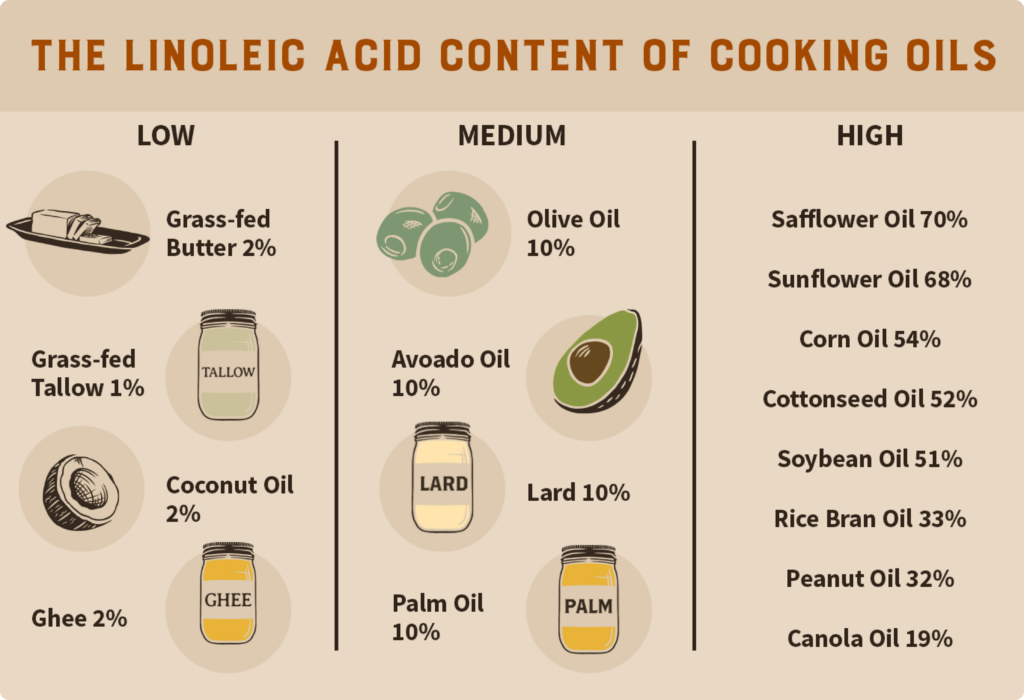
While often labeled as healthy, a connection between vegetable oils and numerous chronic diseases is emerging.
7 Healthy Alternatives to Vegetable Oil
The following options are the best healthy alternatives to vegetable oil that can be used for various cooking needs.
1. Tallow
Tallow is one of the most versatile fats you can use, as it’s excellent for frying, baking, or sautéing.
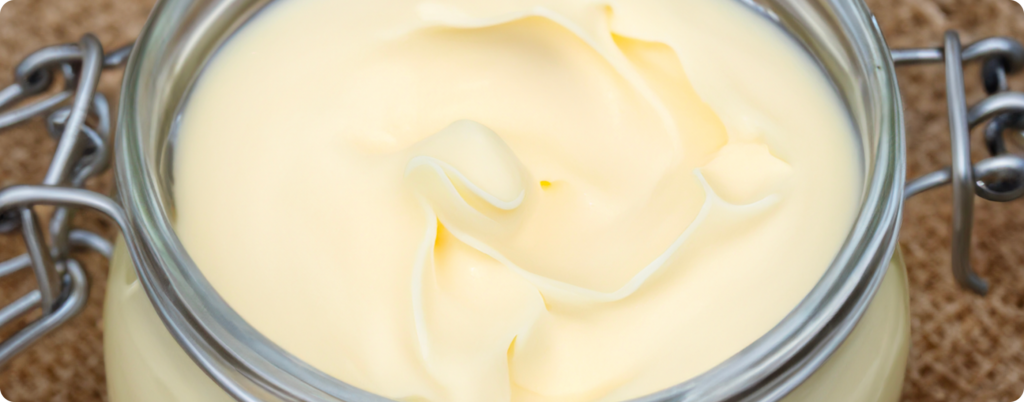
Tallow is simply rendered beef fat (typically from the kidneys) that provides a small amount of fat-soluble vitamins (A, D, E, K), conjugated linoleic acid (CLA), and omega 3s (7).
An impressive array of products can also be made from tallow, ranging from soaps to candles to skincare products.
Promote Healthy Weight Management
Metabolism. Energy. Drive.
2. Butter
If you’re looking for a healthier alternative to vegetable oils, butter just might be your best bet.
Butter is the oldest known animal fat, used by humans for centuries due to its nutrient density and appealing flavor (8). Butter and other dairy products offer vitamins, minerals, protein, and numerous fatty acids.
Although it’s often suggested that you limit saturated fat from animal foods, dairy products such as butter are breaking free from this ideology (9). The so-called downsides of saturated fats are often from studies using isolated forms of saturated fat, instead of the diverse nutrient profile found in actual food.
Look for butter from grass-fed cows with a simple ingredient list. It should just contain cream and salt if you prefer salted butter. Some popular butter brands sneak canola or other seed oils into their products, so beware.
3. Ghee
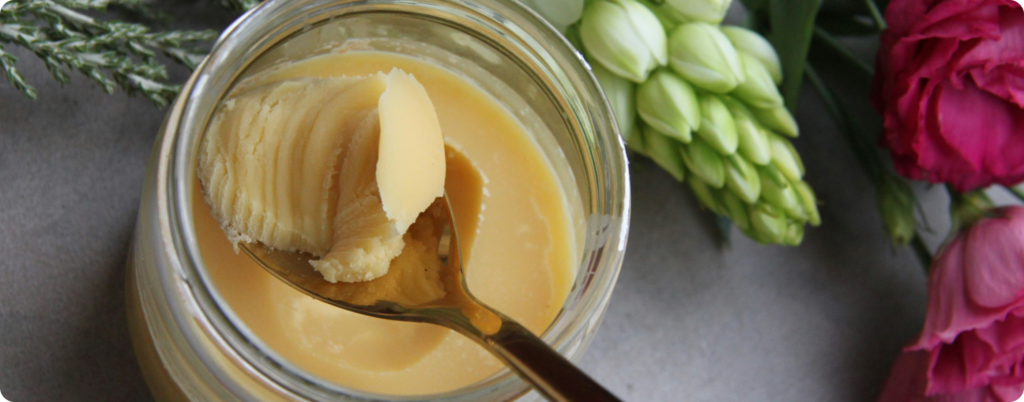
Ghee, aka clarified butter, is closely related to butter as it’s heated to remove the water content (10). Ghee contains vitamins A, E, and K and has antioxidant properties (11). It can be made from cattle, goats, and sheep’s milk, cream, or butter (12).
The “darling child of Ayurvedic medicine”, ghee has been used for thousands of years to combat disease and promote longevity (13). It’s even used to treat skin, allergies, and respiratory diseases (14).
4. Lard
Another healthy substitute for vegetable oil is lard. Lard is similar to tallow but primarily comes from pigs and contains vitamin D, choline, and other key nutrients (15).
A 2023 Chinese study concluded that compared to vegetable or ginger oil, lard and other animal fats are more beneficial for the cardiovascular health of adults over the age of 65 (16).
Another study on mice found that the omega 3’s in lard helped to lower triglycerides, LDL, and cholesterol (17).
Lard is much higher in PUFAs than other animal fats, so it should be moderated.
5. Olive Oil
Although olive oil is technically a vegetable oil (18), it can still be a valuable addition to your diet.
Unlike other vegetable oils that undergo rigorous processing before they wind up at the local grocery store, olive oil is essentially a type of fruit juice that’s produced without chemical solvents and has been consumed for centuries (19).

Consumption of extra virgin olive oil is thought to help protect against coronary heart disease, aging, certain cancers, and obesity-related diseases (20, 21, 22). The ancient Greeks even called it an “elixir of youth and health” (23).
Once again, double-check your ingredient labels to ensure you’re not buying olive oil mixed with soybean, canola, or other seed oils. Choosing the right olive oil brand means it has no additives and is 100% pure juice from olive fruit.
6. Coconut Oil
Coconut oil is extracted from coconut palm trees and is a rich source of saturated fatty acids (24).
Potential benefits include memory enhancement, weight loss, and immunity improvements (25). However, scientific evidence does not yet support many of these claims (26).
7. Avocado Oil
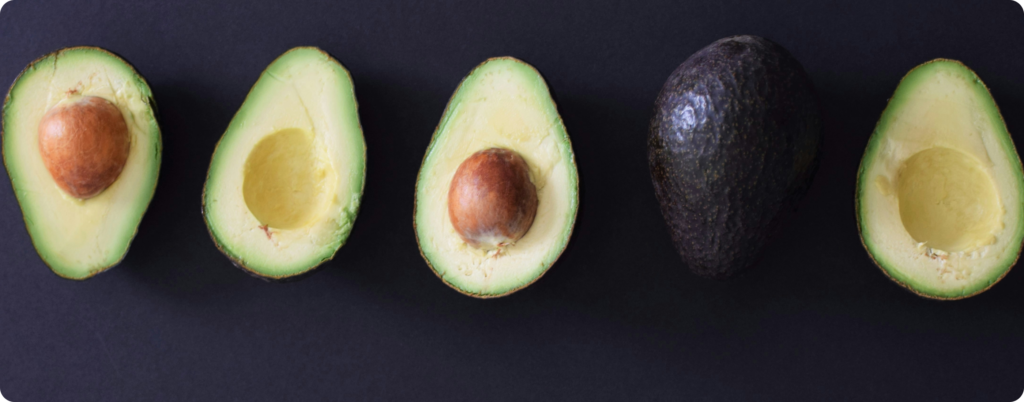
Avocado oil boasts antioxidants and other nutrients that make it a popular modern cooking oil (27).
Avocado oil is mainly sourced from Mexico, New Zealand, and the United States (28) and comes in these types:
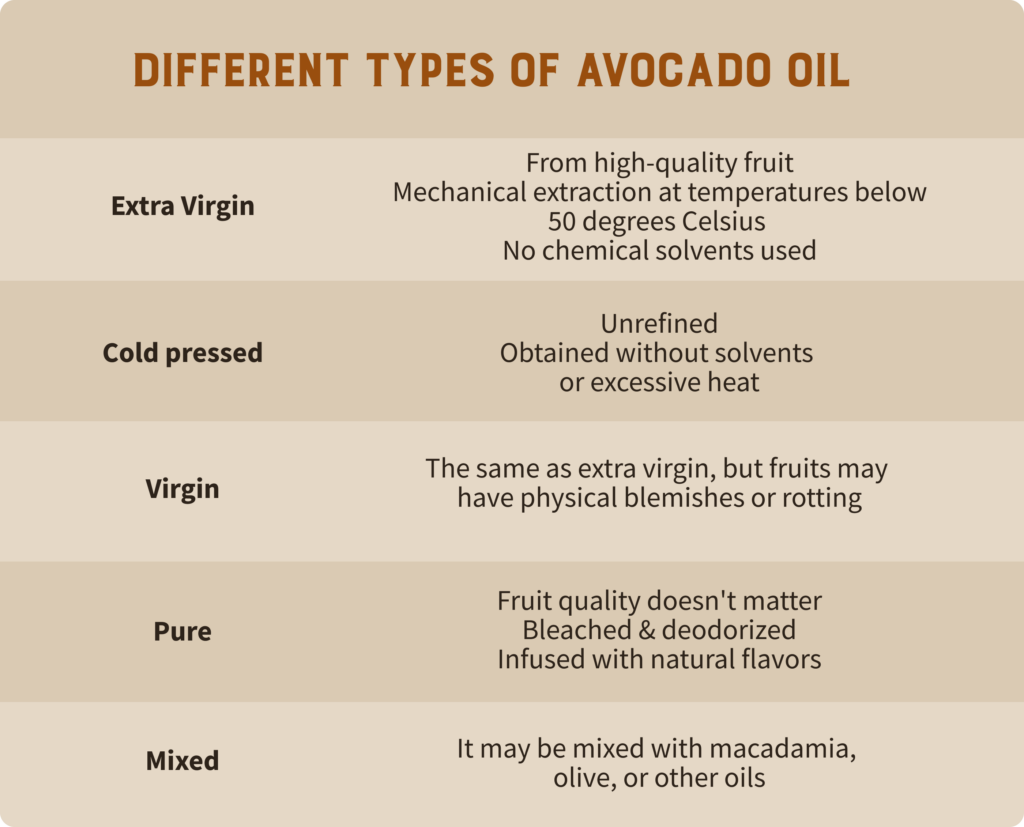
Unfortunately, the avocado oil market is ripe with misleading offerings, and consumers have no fraud protection (29).
One study from 2020 found that the majority of samples were oxidized before they reached the listed expiration date, and two samples were almost 100% soybean oil (30).
A follow-up study published in 2023 looked at 36 brands of avocado oil. Only 36% lived up to the advertised quality standards, and 31% were pure (31).
So, due diligence is necessary before buying avocado oil.
Toss the Vegetable Oils!
Finding a healthy substitute for vegetable oil doesn’t have to be complicated. While they’re convenient to use and cost-effective, vegetable oils often come with several downsides that fly under the radar.
Instead of choosing highly processed vegetable oils, look for traditional fats such as tallow, butter, or ghee that have been used for centuries.
Subscribe to future articles like this:
